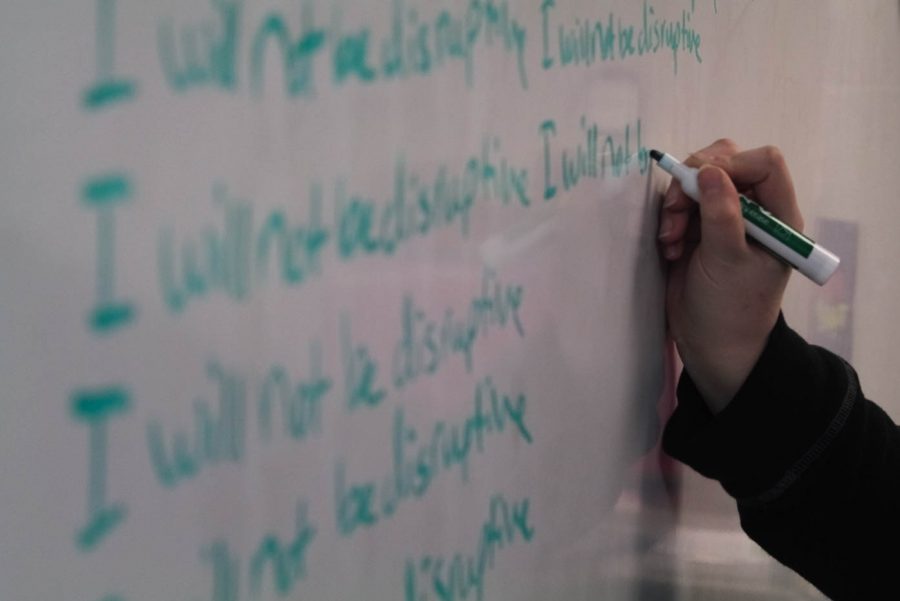Administration crafts and implements new detention policy
Photo illustration.
December 8, 2017
Administration has implemented a new detention policy to address minor disciplinary offenses.
On November 12th, an email was sent to parents and students concerning a new detention system. It warned that, starting November 13th, teachers will begin assigning after school detentions for “minor behavior infractions,” and yet, almost a week later, few students have witnessed its effects.
Ideally, teachers are to be given a detention “sign-up sheet” in which they may place the names of students who they believe have committed a detention-meriting offense. However, due to organizational difficulties, it has not yet been made available. The administration is currently working the issue out, and will probably have devised a system by next week.
“It’s kind of at the partial implementation right now,” said Marissa Moore, the Dean of students. “We don’t have the actual sign-up sheet live currently.” Since this interview, the detention signup has now been sent to teachers and activated.
One question many students share concerns what misdemeanors the new detention policy will encompass. According to Moore, these are “minor behaviors” that, while not stop-the-entire-class level disruptions, are behaviors students should not be exhibiting, such as sleeping in class, getting off-task, cheating, and being disrespectful to a teacher or substitute.
“…every other classroom has their own rules, so really, after school detention is for anybody who’s not meeting the expectations for that particular classroom,” said Moore.
According to Moore, the new policy is not meant to punish students, but rather intends to give them a less severe disciplinary option, compared to, for example, the currently running Saturday School system (only if these detentions are missed will students be placed in more serious positions, like ISS). In detention, which will last two hours after school, students will finish homework, make up missing assignments, or read, under the supervision of several administrators, including Moore herself.
“[After school detention] is less severe than Saturday School, because it’s less time,” said Moore. “But the biggest goal of both is to offer a space of reflection.”
In addition to all this, the new detention policy frees up the referral gridlock that has bound the administration in the past.
“There is one dean, and that’s me, for 750 kids, so some of these minor behaviors are turning into referrals, and then they’re not being addressed as quickly as they could,” Moore said.










